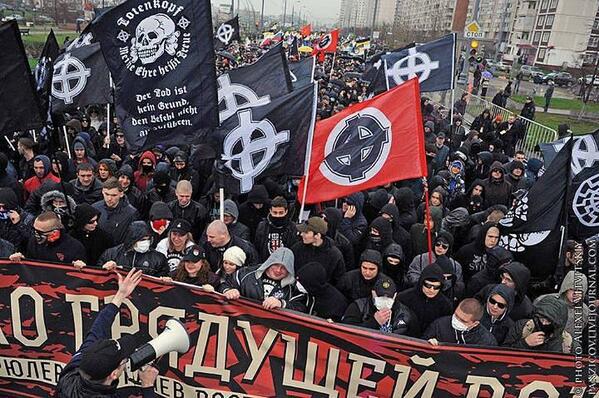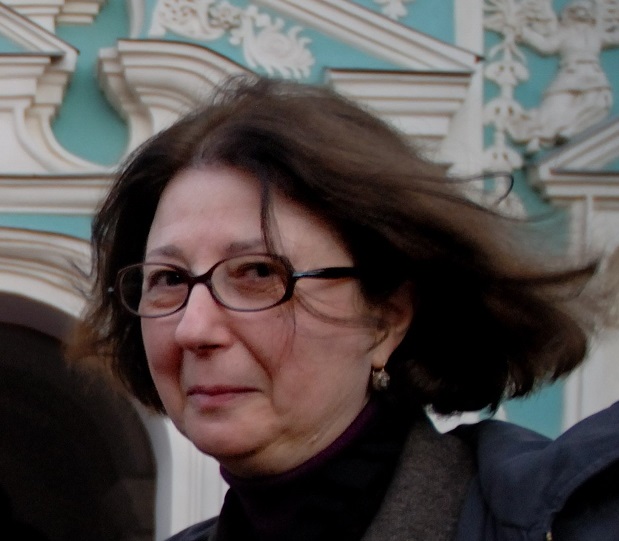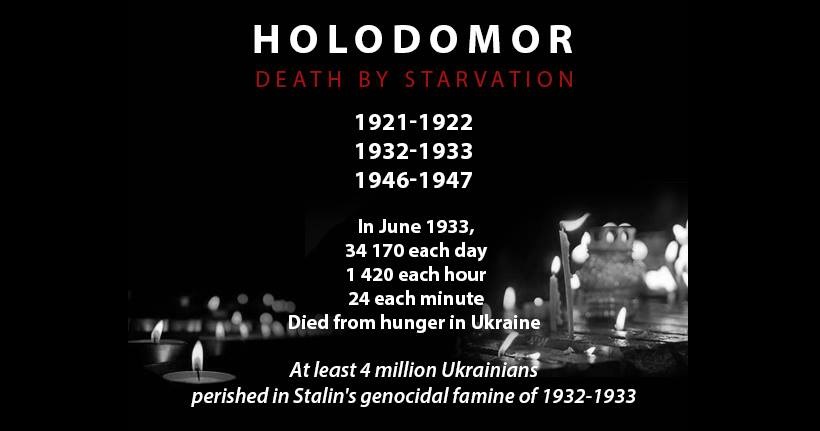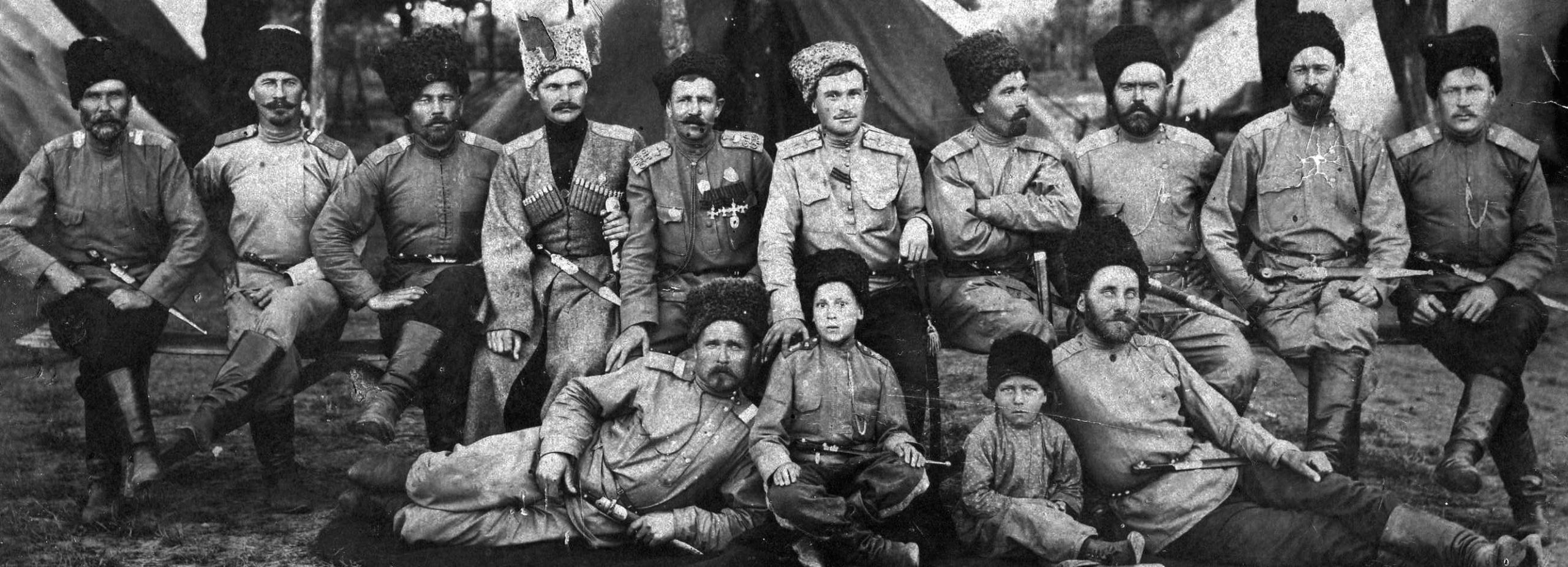No one should be surprised that Russia is rapidly turning to fascism, according to Mikhail Yampolsky. It is simply “the delayed reaction to the disintegration of the empire,” a delay occasioned by the growth in consumption made possible by high oil prices. As such, Russia today is simply recapitulating what happened in Weimar Germany.
But that recapitulation is taking place not simply at the systemic level, the Russian analyst says, but at the psychological level as well – and an appreciation of the recapitulation at that level helps to explain a great deal of what is going on in Russia at the present time.
“It is well known that Nazism also was a reaction to defeat in war, the disintegration of an empire, and the rapid loss of Germany’s significance in the world,” Yampolsky says. “Fascism and a sense of national denigration are closely connected phenomena,” and the psychoanalytic perspective on this offered by Melanie Klein is suggestive.
The late Austrian psychoanalyst demonstrated that “weakness, poverty and a sense of denigration leads to a so-called projected identification” that in turn is linked to a paranoid-schizophrenic position” in which individuals or groups project unto others the very qualities they do not approve of or want to face in themselves.
Thus, Yampolsky says, Russians today “systematically accuse Ukrainians of fascism,” while “their own movement toward fascism is excluded by the fictional idealization of its form.”
But the ways in which the current Russian situation resembles that of Germany in the 1920s are “not exhausted by that,” the analyst says. Russia’s pace now is “complicated by the paradoxes of post-imperial victimization,” even though Russia viewed from the side doesn’t appear to fit “the role of victim.”
Nevertheless, Yampolsky points out, “Russia constantly asserts that it is the victim of aggression. The former republics having gained their independence feel themselves as it were much better. Ukrainians, the victims of Russian aggression, for example, are experiencing a period of growth of self-consciousness and a moment of birth of a feeling of their own worth,” even as Russia is mired in a sense of being denigrated by others.
According to the Russian analyst, Russians are finding it easier to do so because of a shift in historiography in Europe over the last two generations. In the past, it was common ground that history is always written by the victors and the victims are forgotten. But after World War II, as a result of the Holocaust, history increasingly has been written about the victims rather than the victors.
That has had an impact on Russian thinking. Yampolsky gives as an example the fact that “ever more books” are appearing about “how Soviet soldiers in occupied Germany raped and stole, and these ‘unwelcome’ researches are becoming if you will no less significant than an analysis of the strategy of Marshal Zhukov.”
Such dramatic shifts from warrior to victim, “from war to civilian life are accompanied by a shift in the understanding of sovereignty” and to the significance which those in the Kremlin give it. In the past, sovereignty meant the right to change laws and begin war, but now, those opportunities have been seized by sub-state actors like Al-Qaeda and ISIL.
It is in this context that the Russian campaign to overcome its “post-imperial trauma” has arisen, and that helps to explain “the extraordinary significance of Crimea to Putin” because of “the absence of victims” and the role of “’the polite men,’ victors who did not shed innocent blood.”
The Donbas campaign immediately called that into question, and it quickly became apparent that it “could not produce a single heroic figure” who could be used to promote the Crimean goals. That is because “the formation of fascist consciousness needs an esthetic phase” with marches, films, and “a demonstration of force and unity.”
“The contemporary era,” Yampolsky points out, “is completely insensitive to making aggression and force heroic.” And that has led to what appears internally inconsistent but in fact is totally consistent: “the present-day Russian fascist is all-powerful” at least as presented by propaganda “and at the same time a victim being pursued.”
The Russian analyst makes another important point about the specific features of the rise of fascism in Russia as far as the individual personalities of its population are concerned. He begins by observing that human beings are members of groups but their identities and behaviors are determined by the nature of groups of which they are members.
He cites the observation of British psychoanalyst Wilfred Bion who suggested that groups can be divided between “working groups” and “basic assumption groups.” The first is directed at fulfilling a specific task, presupposes cooperation, and is the predominant form in democratic societies.
That dominance, Yampolsky suggests, “explains their ability to engage in mass actions of solidarity such as that recently demonstrated by the manifestations in support of Charlie Hebdo.”
Russian society, however, “cultivates ‘basic assumption groups,’” in which the paranoid-schizophrenic position Klein described dominates, in which “illusion rules” and where the members reject the differentiation which is accepted from the outset in the working groups of democratic societies.
The primary task of these “’basic assumption groups’” is “the rejection of one’s own ego and fusion in some narcissistic and undifferentiated unity.” The members of such groups are intolerant of any deviation “from united thought and behavior” and thus are often infantile, given to leader worship, and enormously destructive.








